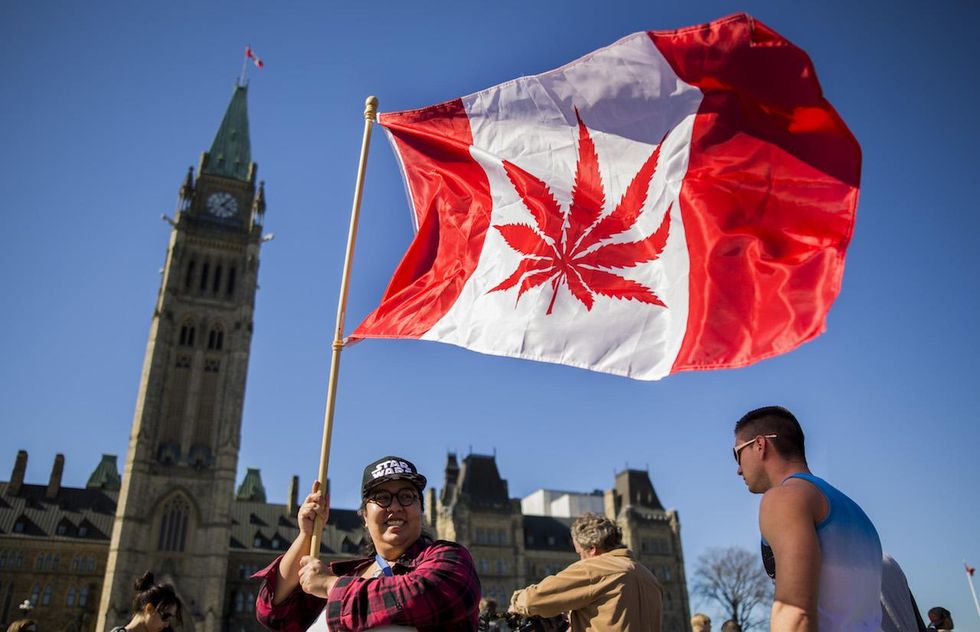
Canadian Parliament passed the Cannabis Act to allow the use of recreational marijuana. (Chris Roussakis/Getty Images)

Canadians will soon be free to consume recreational marijuana throughout the country following Parliament's passing of the Cannabis Act.
Late Tuesday, the Canadian Senate passed the bill 52-29, which will allow citizens to buy, possess, consume and grow up to four plants per household. The measure was approved earlier this month by the House of Commons 56-30.
Canada became the second country to approve the nationwide legalization of the drug. The South American country of Uruguay was first. Although The Netherlands openly tolerates recreational marijuana use, it is still technically illegal there.
The bill fulfills a campaign promise made by Prime Minister Justin Trudeau who was elected in 2015. Trudeau is a member of the ruling Liberal Party.
"It's been too easy for our kids to get marijuana and for criminals to reap the profits. Today, we change that. Our plan to legalize & regulate marijuana just passed the Senate. #PromiseKept," Trudeau tweeted shortly after the Senate's vote to approve the measure.
Supporters believe the move will help control organized crime while keeping pot out of kids' hands, according to the bill.
Marijuana became illegal in Canada in 1923, but its use for medical purposes was legalized in 2001.
The legislation is expected to go into effect by September, according to the BBC.
Federal regulation will allow those 18 and older to purchase marijuana in various forms, including edibles and cannabis-infused foods, but some provinces have set the age at 19.
Adults will be allowed to possess up to one ounce of dried pot in public.
Individual provinces will determine how its sold and where it can be smoked.
Marijuana will be packaged with little branding and strict health warnings, along with restrictions on promotions that target the youth.
Conservative Party leader Andrew Scheer said that making the drug more accessible will normalize its use, Vox reported.
Many fear children will have easier access to the drug, which has proven harmful effects on the developing brain.
"Hope we are wrong on this piece of legislation. I think it will be catastrophic for Canadian generations to come," Sen. Leo Housakos tweeted early Wednesday morning.
The impact on public health is another concern, especially for those who have problems with overuse and addiction.
“At some level, we know that spending more than half of your waking hours intoxicated for years and years on end is not increasing the likelihood that you’ll win a Pulitzer Prize or discover the cure for cancer," Jon Caulkins, a drug policy expert at Carnegie Mellon University, told Vox.
Others, including the government's task force, believe the legal age should have been set at 25 instead of 18.